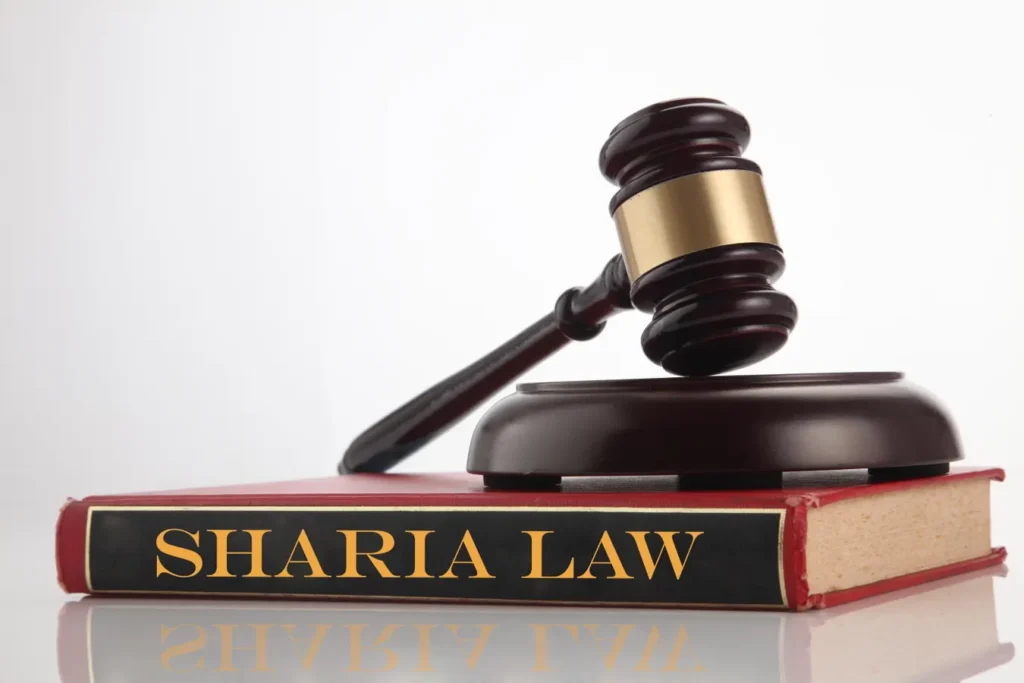The reintroduction of Sharia (Islamic) criminal law in Northern Nigeria from 1999 remains one of the most transformative developments of the Fourth Republic. Originating in Zamfara State and spreading across twelve other northern states, this legal revival reshaped governance, public morality, and national discourse on religion and constitutionalism. Two decades later, its legacy continues to influence Nigeria’s social, legal, and political dynamics.
Historical Background of Sharia in Nigeria
Islamic law has historically governed northern Nigeria, predating colonial rule. The Sokoto Caliphate (1804–1903) operated under full Sharia systems across criminal, civil, and family law. However, British colonial authorities curtailed its criminal aspect after the 1900s and codified a uniform Penal Code in 1959. Following independence, Sharia remained limited to personal law, marriage, inheritance, and guardianship, administered through Sharia Courts of Appeal.
The 1999 Constitution retained these provisions and explicitly prohibited the adoption of any state religion (Section 10). Nonetheless, many Muslim-majority states sought to restore fuller Islamic governance, claiming moral decline and corruption as motivation. This set the stage for renewed political and legal debates.
The Reintroduction Era (1999–2002)
In October 1999, Governor Ahmad Sani Yerima of Zamfara announced the full implementation of Sharia criminal law for Muslims. The law came into effect on 27 January 2000, supported by new institutions such as a Council of Ulama, a Hisbah Commission, and a Zakat Board. Public enthusiasm was strong across much of the Muslim north, and within two years, eleven additional states, including Kano, Sokoto, Katsina, Bauchi, and Niger, had enacted similar legal frameworks.
However, the adoption provoked violence in mixed communities, particularly in Kaduna, where deadly riots broke out in 2000. Supporters celebrated Sharia as a return to discipline and justice, while critics argued it violated Nigeria’s secular constitutional principles and endangered religious minorities.
EXPLORE NOW: Democratic Nigeria
Legal Instruments and Institutions

Sharia Penal Codes and Courts: Each implementing state passed laws expanding jurisdiction from personal to criminal matters, including hudud (fixed punishments) and ta‘zir (discretionary penalties). Offences such as theft, adultery, alcohol consumption, and blasphemy fell under these laws. Defendants retained rights of appeal through state Sharia Courts of Appeal and the federal judiciary.
Hisbah (Moral Policing): Hisbah groups emerged to promote moral conduct and community discipline. Kano formalised its Hisbah Board in 2003, giving it semi-official status. While intended as advisory, Hisbah enforcement has occasionally raised constitutional questions over jurisdiction and human rights.
Zakat and Social Welfare: Several states established zakat boards to manage charitable giving and social welfare. These bodies symbolised Sharia’s social-justice ideals, aiming to redistribute wealth and support vulnerable citizens.
Landmark Legal Cases
High-profile Sharia convictions in the early 2000s drew global scrutiny. The 2002 adultery conviction of Amina Lawal in Katsina and her subsequent death-by-stoning sentence were overturned on appeal in 2003 for lack of evidence and procedural flaws. Similarly, Safiya Hussaini’s conviction in Sokoto was dismissed, reflecting the role of appellate courts in enforcing due process.
The 2020 blasphemy case of Yahaya Sharif-Aminu, sentenced to death by a Kano Sharia court for song lyrics deemed offensive to Islam, reignited international concern. The conviction was later quashed for procedural errors, and a retrial ordered. The case remains under review at the Supreme Court, testing Nigeria’s constitutional protection of free expression.
READ MORE: Ancient & Pre-Colonial Nigeria
Federalism and Constitutional Limits
Sharia’s application has tested Nigeria’s federal balance. Supporters assert it is voluntary for Muslims and consistent with constitutional freedoms. Critics counter that the criminalisation of religious offences effectively imposes religion in violation of Section 10.
Courts have consistently reaffirmed constitutional supremacy. While states possess authority to legislate on criminal matters, those laws must conform to the Constitution’s provisions on equality, fair trial, and freedom of religion. In practice, this judicial oversight has moderated implementation and reduced extreme punishments.
Evolution and Adaptation (2003–Present)
Over time, enforcement has become less dramatic and more bureaucratic. The early zeal gave way to selective enforcement focusing on community mediation, family disputes, and minor offences. In Kano, Hisbah continues to enforce modesty rules and regulate alcohol sales, while in other states, Sharia operates quietly within broader judicial systems.
Security crises, especially the Boko Haram insurgency in the northeast, have further complicated Sharia administration. Militants’ misuse of Islamic rhetoric to justify violence contrasts sharply with the legal Sharia practised by state authorities, deepening both domestic and international debates about Islam and justice in Nigeria.
Social Impact and Public Perception
Empirical studies show mixed outcomes. In some states, petty crime and public indecency reportedly decreased, while critics highlight selective enforcement against the poor and the marginalised. Sharia’s moral campaigns, such as bans on alcohol, gambling, and indecent dressing, remain controversial but politically potent.
Non-Muslims are legally exempt, yet practical cases of coercion occasionally emerge. Federal agencies and civil society have worked to strengthen rights protections, emphasising voluntary compliance and constitutional recourse.
Contemporary Relevance
Sharia’s endurance underscores its social legitimacy in Muslim-majority regions. However, as Nigeria grows more interconnected, the tension between religious law and constitutional democracy persists. Appellate courts continue to refine boundaries, ensuring state laws respect human rights and federal unity.
The ongoing debates around blasphemy laws, Hisbah powers, and women’s rights illustrate how Sharia remains central to Nigeria’s evolving identity, balancing faith, law, and freedom.
Author’s Note
This article analyses the evolution of Sharia law in Northern Nigeria, tracing its precolonial roots, democratic reintroduction, and constitutional contestations. It highlights the roles of key figures, landmark cases, and institutional developments shaping Sharia’s trajectory since 1999. The study concludes that while Sharia has become an enduring feature of Nigeria’s legal pluralism, its legitimacy depends on constitutional balance, procedural fairness, and respect for individual rights.
References
- Ostien, Philip. An Introduction to the Shariah Penal and Criminal Procedure Codes of Northern Nigeria. Spectrum Books, 2007.
- Human Rights Watch. Political Shari’a? Human Rights and Islamic Law in Northern Nigeria. New York, 2004.
- Loimeier, Roman. Muslim Societies in Africa: A Historical Anthropology. Indiana University Press, 2013.

